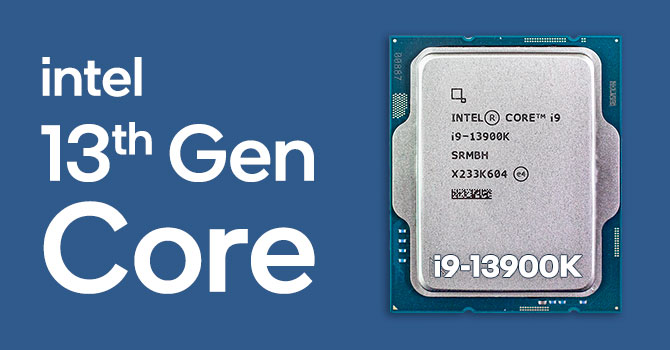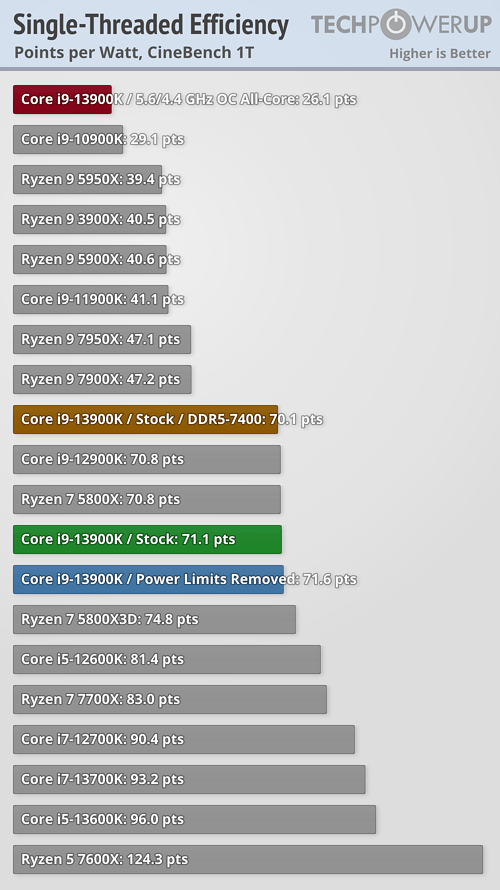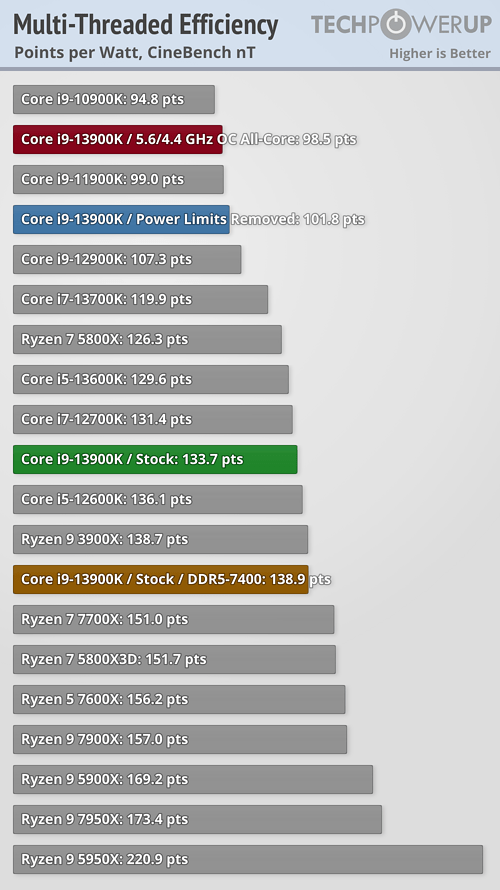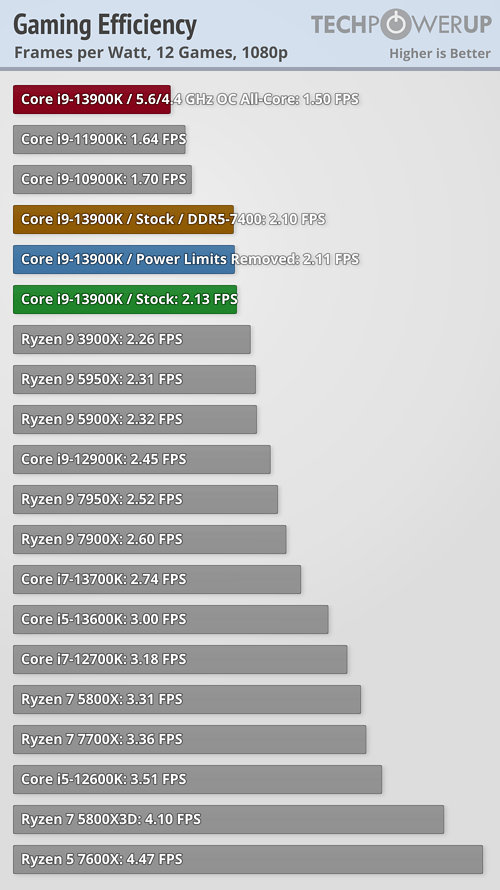Yuck. Revenue down 32% and again they lost money.
CCG revenue down 36%, DCG down 33%... that in Q4 compared to previous year.
Q1 Guidance is even worse... revenue down 40% YoY.
Just because you own something does not mean it's cheaper to run. What is Intel defect density vs TSMC, ditto salary costs, fab utilization rates, etc. What if, horror, TSMC is cheaper even with their profits added.Intel's problem with power is a result of process delays. They can't sell 16 Golden Coves at a price competitive point to AMD's Zen 4 due to the fact that it's just to many square mm of silicon. CPU architecture isn't so much the issue as it process and the downstream effect as it relates to transistor density, efficiency, and resulting need to push frequency into non-efficient regions of the v/f curve.
AMD has done a brilliant job with Zen 4 but it would not exist without TMSC brilliant fabs.
While Intel has problems to be sure, I wouldn't the grave just yet. They still have the advantage of having their own fabs, which even if they are only used to produce I/O and other parts that do not require top of the line process this gives them a economic advantage. Couple this with the fact that most people don't know what is the "best" cpu, they just need something in their laptop/desktop that is competitive, gets the job done, is priced right, and is available. Intel can still get that done. It's their bread and butter. The mass media parts. Like the BMW 3 series or Honda's Accord, these are the things that they have to get right. Intel still understands that.
CPU architecture isn't so much the issue as it process and the downstream effect as it relates to transistor density, efficiency, and resulting need to push frequency into non-efficient regions of the v/f curve.
Intel's problem with power is that no review site shows real power measurements with each result, but only show TDP setting used or even worse, max power draw under stress test.Intel's problem with power is a result of process delays.
Processor Base Power 35 W
Maximum Turbo Power 106 W
At the same-ish clocks, 5.8Ghz for the 13900k and 5.7Ghz for the 7950x the intel cpu is a good 30% more efficient...47 to 71 points.That s not a matter of v/f curve whatever the way it is pushed, thing is that TSMC is at the next node level, a 13900K fabbed with TSMC s 5N would be 40- 50% more efficent at the same frequency the same way a 7950X has such an advantage against a 5950X, at same process the latter would be more efficent if it wasnt for the former s better IPC that allow lower clocks/same throughout and hence easy compensation for the inflated transistor count.


Intel's problem with power is that no review site shows real power measurements with each result, but only show TDP setting used or even worse, max power draw under stress test.
The 13900t can run at 35W for the whole CPU.
The problem isn't the power, the problem is that nobody knows how much power you need for any performance level since you only get a TDP rating and the actual power draw can be much lower or also much higher than that.
They need to show real power draw for each result they get.
Intel® Core™ i9-13900T Processor (36M Cache, up to 5.30 GHz) - Product Specifications | Intel
Intel® Core™ i9-13900T Processor (36M Cache, up to 5.30 GHz) quick reference with specifications, features, and technologies.www.intel.com
At the same-ish clocks, 5.8Ghz for the 13900k and 5.7Ghz for the 7950x the intel cpu is a good 30% more efficient...47 to 71 points.

Intel Core i9-13900K Review - Power-Hungry Beast
With the Core i9-13900K, Intel delivers impressive performance. Our in-depth review confirms: Raptor Lake is the world's fastest CPU for gaming. Even in applications the processor is able to match AMD's Zen 4 Ryzen 9 7950X flagship. If only power consumption wasn't so high...www.techpowerup.com



U.S. jobs report today: Economy added 517,000 jobs despite recession risk; unemployment fell to 3.4%Nothing at all, but if it's a down market and not just one company screwing up and losing market share the competition might be in a similar situation themselves.
If no one else is hiring at the moment then over some period of time the pay cut is less bad than prolonged unemployment. This assumes of course that when situations improve the pay cuts are rescinded.
Intel's decision to lay off people and cut salaries instead of dividends is incredibly shortsighted.
Let's not forget, Intel is doing fine.Yup, everyone is an idiot and uses TDP values and does not know how to actually measure power usage.
Also, nice cherry picking.


So sure, I suppose if you bought a 13900k and turned off all but one P core it would be the most energy efficient. Zen has an IOD and possibly another CCD to power so at low usage that 1T has to share a lot of power. The 7700X and especially the 7600X suddenly beat it. Of course, I would expect this kind of misinformation from you.
Wouldn't that really piss-off the regular employees?My expectation is that they are going to suspend the dividend... just after the execs get their chance to unload their stock.
U.S. jobs report today: Economy added 517,000 jobs despite recession risk; unemployment fell to 3.4%
Aside from a few highly publicized layoffs in the tech sector which had to correct for pandemic overhiring, the overall job market is booming, the unemployment rate is at 54 year low. And even with the layoffs the tech sector still employs more people than pre-pandemic.
Yes, tech sector pandemic bubble overhiring spree is being corrected now, but things are not as dire as talking heads would like you to believe. I suspect even the tech sector will correct itself shortly and begins hiring again in the next 12 months. As such, Intel's decision to lay off people and cut salaries instead of dividends is incredibly shortsighted. Even if remaining Intel employees chose to hunker down for a bit, they will undoubtedly be looking for an exit as soon as they can, which can be as early as next year. Intel simply cannot afford to lose their engineers when they're already struggling to bring competitive product to the market. That's just slow suicide in the making.
So sure, I suppose if you bought a 13900k and turned off all but one P core it would be the most energy efficient. Zen has an IOD and possibly another CCD to power so at low usage that 1T has to share a lot of power. The 7700X and especially the 7600X suddenly beat it. Of course, I would expect this kind of misinformation from you.
How do you know that the multi threaded results are at even remotely the same clocks?!That s not a matter of v/f curve whatever the way it is pushed, thing is that TSMC is at the next node level, a 13900K fabbed with TSMC s 5N would be 40- 50% more efficent at the same frequency the same way a 7950X has such an advantage against a 5950X, at same process the latter would be more efficent if it wasnt for the former s better IPC that allow lower clocks/same throughout and hence easy compensation for the inflated transistor count.
How are they not doing fine?! Even with the negative cash-flow they have that much retained earnings that they could pay off all of their debt today and still have more than 30 bil in their pockets.Let's not forget, Intel is doing fine.
Current cash means nothing if the outlook is dim on future income. Just looking at the server segment alone, AMD is gaining market share, and with Genoa and Genoa-x this is not likely to change anytime soon. And that is the most profitable sector. I mean look at the quarterly reports for the last 2 years, and compare to AMDs quarterly reports for the last 2 years. See a pattern ?How are they not doing fine?! Even with the negative cash-flow they have that much retained earnings that they could pay off all of their debt today and still have more than 30 bil in their pockets.
Things are different than they used to be 10 years ago. Apple has its own silicon now, Google has its own silicon, Amazon has its own silicon, and of course there is AMD, not to mention a myriad of other smaller companies. The industry is vast and ever expanding. Yeah, they may have to switch from designing x86 to ARM architecture, but they won't have to go to school to make the switch. Again, incredibly shortsighted decision on Intel's part, but not surprising given their post Sandy Bridge stagnation over 12 years in the making.Many workers at Intel are highly specialized. Sure they could get a job flipping burgers if they absolutely had to, but most people will want to continue working in their area of expertise.
If the market for their specific job has cratered, it might even require going back to school if they want another skilled labor position. Many people would prefer a pay cut when the alternatives could be a lot worse.
Alder lake was a MASSIVE jump in performance. And Raptor lake brought a significant jump in core count, some PC CPUs got EIGHT extra cores compared to Alder lake.... Again, incredibly shortsighted decision on Intel's part, but not surprising given their post Sandy Bridge stagnation over 12 years in the making.
While not insignificant, it came at a cost, POWER. Example, take a 1974 2300 Pinto engine. It was 86 horsepower. Take the 2019 Ford ecoboost 2300. Its 270 horsepower, and more fuel efficient also.Alder lake was a MASSIVE jump in performance. And Raptor lake brought a significant jump in core count, some PC CPUs got EIGHT extra cores compared to Alder lake.
These are not insignificant improvements.
Is ISA even important for most working on chip designs? The sub-components such as cache , branch predictors, buffers, matrix units, and many more are just computational units used for all CPUs. These guys could probably switch pretty much instantly.Things are different than they used to be 10 years ago. Apple has its own silicon now, Google has its own silicon, Amazon has its own silicon, and of course there is AMD, not to mention a myriad of other smaller companies. The industry is vast and ever expanding. Yeah, they may have to switch from designing x86 to ARM architecture, but they won't have to go to school to make the switch. Again, incredibly shortsighted decision on Intel's part, but not surprising given their post Sandy Bridge stagnation over 12 years in the making.
And what does that have to do with Intel Q4 results ?Intel made to many K 13000 series! Some Ks are selling at a big discount while the non K are out of stock and/or marked up!
You make it sound like the problem is one of the employees, being so specialized. It's not.Many workers at Intel are highly specialized. Sure they could get a job flipping burgers if they absolutely had to, but most people will want to continue working in their area of expertise.
If the market for their specific job has cratered, it might even require going back to school if they want another skilled labor position. Many people would prefer a pay cut when the alternatives could be a lot worse.
Intel is in trouble, otherwise they would not be laying off so many people. That is hard to argue.
The long lead times for products makes it a lot harder to argue that they're in trouble right now.
OK, I agree with long lead times, but come on, Ryzen 1800x was launched in 3/2017, that almost 6 years ago. They still have not really come out with a compelling server product, and desktop ADL/RKL sucks power like crazy (yes Zen 4 is more than some wished, but still way less than those) So in 6 years thats the best they can come up with ? Do you mean 10 years lead time is required or more in the computer industry ? Core came out in 2006 and destroyed AMDs lead, and it took them 11 years to beat Intel but Intel being so much larger and financed you would thing they could do more in 6 years.While I don't think it's hard to argue that they're not doing as well as they used to, "trouble" feels like too strong of a word or ignores several years of problems that have led to this point.
The long lead times for products makes it a lot harder to argue that they're in trouble right now. We're just seeing a realization of the problems they were having years ago and even if Intel has made a perfect course correction this very day that fixes all of their woes, we won't see it fully play out in the market for a few years.
AMD was in a far more precarious situation not all that long ago and now we're seeing them reap the benefits of their own successful course correction. Intel is just going to have to deal with unruly investors and that they won't be able to throw their weight around like they used to be able to back in the day.


